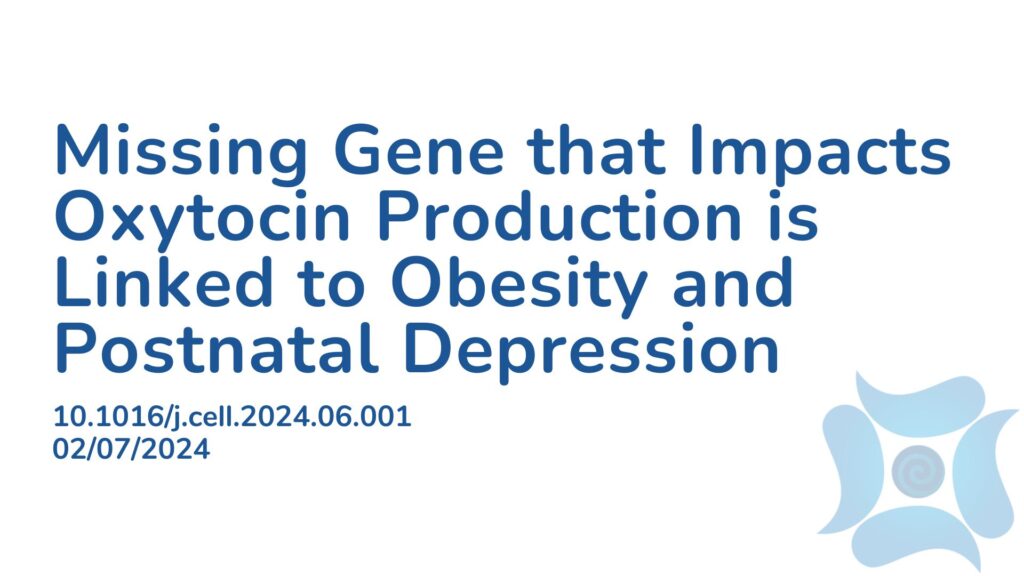Summary:
Obesity and postnatal depression are major global health issues. Postnatal depression affects over 10% of women within a year of childbirth and is linked to an increased risk of suicide. Obesity has more than doubled in adults and quadrupled in adolescents since 1990. This study, which is both an analysis of humans and animals, discovered that two male children with severe obesity, anxiety, autism, and behavioral problems were missing a gene called TRPC5. This gene deletion was inherited from their mothers, who also had obesity and postnatal depression. To explore the role of this missing gene, the researchers engineered mice with a defective version of the gene. Male mice showed similar issues as the boys, including weight gain, anxiety, and aggressive behavior. Female mice exhibited these behaviors and, when they became mothers, also showed depressive behavior and impaired maternal care. It is known that the TRPC5 gene affects oxytocin neurons in the hypothalamus, which control appetite and other instinctive behaviors. Deleting TRPC5 in these neurons caused anxiety, overeating, and postnatal depression in mice, while restoring the gene alleviated these symptoms. The researchers suggest that these findings indicate restoring oxytocin could help treat people with TRPC5 deficiencies and mothers with postnatal depression.
Abstract:
Hypothalamic neural circuits regulate instinctive behaviors such as food seeking, the fight/flight response, socialization, and maternal care. Here, we identified microdeletions on chromosome Xq23 disrupting the brain-expressed transient receptor potential (TRP) channel 5 (TRPC5). This family of channels detects sensory stimuli and converts them into electrical signals interpretable by the brain. Male TRPC5 deletion carriers exhibited food seeking, obesity, anxiety, and autism, which were recapitulated in knockin male mice harboring a human loss-of-function TRPC5 mutation. Women carrying TRPC5 deletions had severe postpartum depression. As mothers, female knockin mice exhibited anhedonia and depression-like behavior with impaired care of offspring. Deletion of Trpc5 from oxytocin neurons in the hypothalamic paraventricular nucleus caused obesity in both sexes and postpartum depressive behavior in females, while Trpc5 overexpression in oxytocin neurons in knock-in mice reversed these phenotypes. We demonstrate that TRPC5 plays a pivotal role in mediating innate human behaviors fundamental to survival, including food seeking and maternal care.
Article Publication Date: 02/07/2024
DOI: 10.1016/j.cell.2024.06.001



